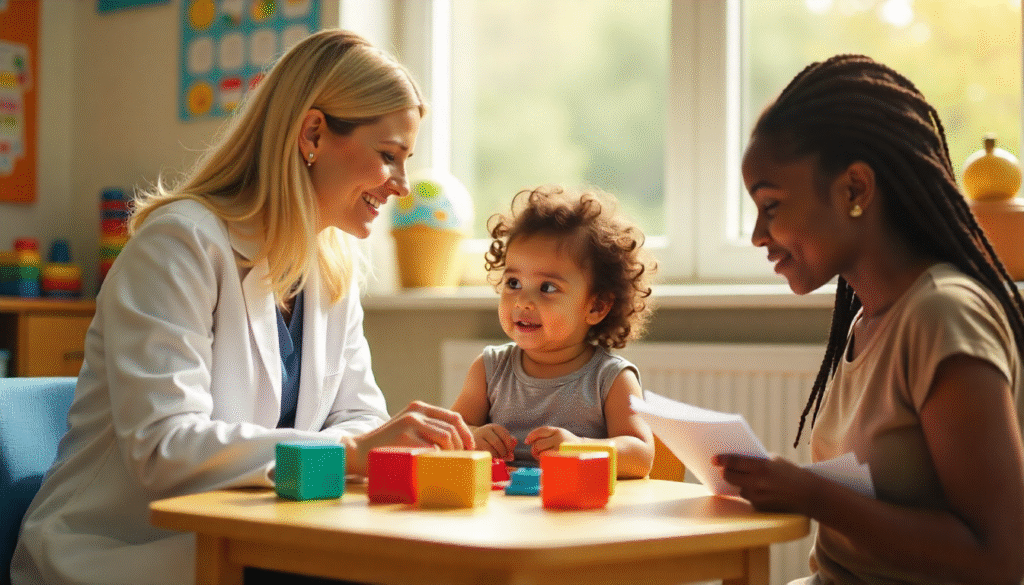Before your child’s first visit, the clinic or school therapist will usually ask you to fill out some important documents. These often include:
• Your child’s medical and developmental history
• Any speech or language concerns you’ve observed
• Information about home life and languages spoken
• Consent and insurance paperwork (if necessary)
👉🏻Pro Tip: Make a list of your concerns or examples of behaviors. Your insights play a key role in tailoring the therapy approach.
- Getting to Know Your Child
Don’t be surprised if the therapist starts the session by simply playing or chatting. This initial time helps your child ease into the environment.
• A relaxed child is more likely to communicate freely.
• Activities like toys, games, or stories may be used to break the ice.
👉🏻Purpose: Build a good rapport and make your child feel safe.
- Observing Communication Through Play
The therapist will gently begin gathering information while engaging your child in fun and age-appropriate ways. They might:
• Watch how your child uses gestures, words, or eye contact
• Ask questions or give simple directions
• Notice how your child responds, listens, and interacts
It may look like ordinary play, but each moment gives the therapist valuable clues about speech, language, and social development.
- A Conversation With You
While your child plays or takes a break, the therapist will likely take time to talk with you about:
• What they’ve seen so far
• Your child’s routines, strengths, and challenges
• Any questions you might have
• A general idea of the next steps
👉🏻Important Note: This is a no-judgment zone. Every child grows at their own pace, and therapists are here to support—not evaluate your parenting.
- Screenings or Evaluations (If Needed)
Depending on your concerns and the setting, the therapist may use some quick tests or informal tools to better understand your child’s abilities. These might look at:
• How your child produces certain speech sounds
• Their understanding and use of words and sentences
• Social interactions and play skills
• Fluency (like stuttering)
• Voice quality and tone
• Swallowing or feeding (in certain cases)
👉🏻Note: Full assessments might be scheduled for a later date if more detailed information is needed.
- What Happens Next?
At the end of the session, the therapist will communicate with you about what comes next. This could include:
• A summary of initial observations
• Recommendations for further assessment or therapy
• Whether immediate sessions are suggested or if monitoring is enough
• Scheduling upcoming appointments if services will continue
If therapy will begin, they may start setting specific, achievable goals for your child.
👉🏻Final Thoughts: A Starting Point, Not a Test
This first visit isn’t about testing your child—it’s about beginning a partnership. It’s the first step in understanding how to support your child’s communication development.
By the end of the session, most families feel:
• More knowledgeable about their child’s needs
• Supported and heard
• Confident in the direction moving forward

